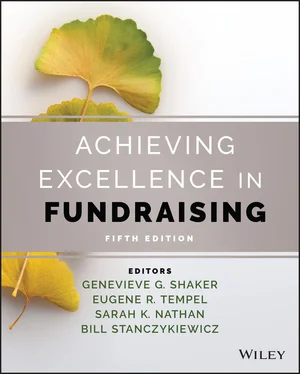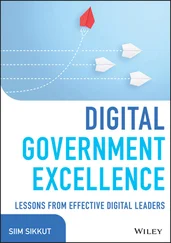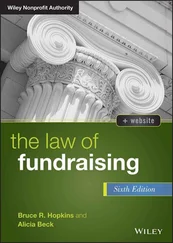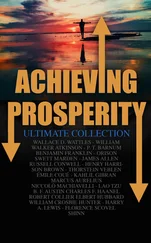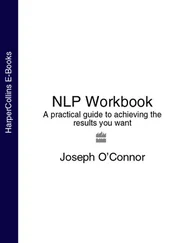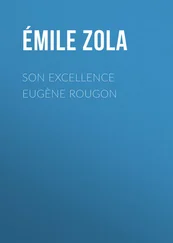Achieving Excellence in Fundraising
Здесь есть возможность читать онлайн «Achieving Excellence in Fundraising» — ознакомительный отрывок электронной книги совершенно бесплатно, а после прочтения отрывка купить полную версию. В некоторых случаях можно слушать аудио, скачать через торрент в формате fb2 и присутствует краткое содержание. Жанр: unrecognised, на английском языке. Описание произведения, (предисловие) а так же отзывы посетителей доступны на портале библиотеки ЛибКат.
- Название:Achieving Excellence in Fundraising
- Автор:
- Жанр:
- Год:неизвестен
- ISBN:нет данных
- Рейтинг книги:5 / 5. Голосов: 1
-
Избранное:Добавить в избранное
- Отзывы:
-
Ваша оценка:
- 100
- 1
- 2
- 3
- 4
- 5
Achieving Excellence in Fundraising: краткое содержание, описание и аннотация
Предлагаем к чтению аннотацию, описание, краткое содержание или предисловие (зависит от того, что написал сам автор книги «Achieving Excellence in Fundraising»). Если вы не нашли необходимую информацию о книге — напишите в комментариях, мы постараемся отыскать её.
Achieving Excellence in Fundraising
Achieving Excellence in Fundraising
Achieving Excellence in Fundraising
Achieving Excellence in Fundraising — читать онлайн ознакомительный отрывок
Ниже представлен текст книги, разбитый по страницам. Система сохранения места последней прочитанной страницы, позволяет с удобством читать онлайн бесплатно книгу «Achieving Excellence in Fundraising», без необходимости каждый раз заново искать на чём Вы остановились. Поставьте закладку, и сможете в любой момент перейти на страницу, на которой закончили чтение.
Интервал:
Закладка:
The next part addresses the various roles, responsibilities, and functions of the fundraising team, broadly defined. This volume's editors lean into their research strengths, presenting data‐driven understandings of the fundraising profession generally and leadership for fundraising specifically. Also in this section are newly updated chapters on engaging board members and volunteers in this work, which is especially important in smaller organizations where fundraisers wear many hats.
Part Fivefocuses on building and growing the base of supporters. Inviting an organization's broadest constituency to become first‐time and then repeat donors is the basis of a healthy annual giving program, from which all other fundraising flows. The section presents annual fund planning tools as well as strategies meant to welcome gifts of all sizes. The chapters examine tactical aspects of inviting and retaining donors: crafting effective appeals, integrating digital strategies, and holding events with purpose.
Research – much of it completed by the Lilly Family School team – is at the core of Part Six, which examines individual donors and their many complexities. The chapters present insights into donors' motivations and behaviors, and recommendations for applying the information to practice. The section is grounded with a new chapter on donor motivation research. Chapters focus on giving by women, within communities of color, among LGBTQ households and high net worth people, as associated with faith traditions, and in reference to generational differences, collectively exploring multiple dimensions of how individuals make giving decisions and express their values through philanthropy.
Similar to Parts Threeand Five, the book's seventh and concluding part provides tactical analysis of fundraising, in this case through the lens of raising funds from major donors, donor‐advised funds, grantmaking foundations, and corporations. From co‐creating major gifts and gift planning to organizing fundraising campaigns and understanding corporate and foundation philanthropy, the seven chapters prepare fundraisers to confidently ask for transformative gifts.
A Contribution to Philanthropy
Many of Hank Rosso's (1991) ideas continue to be foundational to how we think about fundraising, even as the field changes and develops in the United States and beyond. These include taking pride in our work and remembering that fundraising's purpose is to facilitate philanthropy. Philanthropy, in turn, is in service to the greater good and needs and interests beyond one's own. All fundraising rests on the case for support, driven by the mission, and rooted in community needs. All fundraising must be built on a foundation of respect: respect for beneficiaries, organizations, communities, fundraisers, and donors. Respect is conveyed through inclusive practices, including listening and learning; speaking in ways that uplift and do not demean beneficiaries, donors, or fundraisers; and upholding ethical standards and moral values.
Fundraising is a noble career that is meaningful, creative, and fulfilling. It is not easy work; it includes a great range of tasks and activities, and there is opportunity for many to excel and contribute. It is also a black box about which most people, at best, understand little, and at worst, misunderstand much. This book is meant to demystify fundraising by providing information and research on ethics and theory; donor motivations and behaviors; programs and tools; and guiding principles and philosophies. By improving fundraising and supporting fundraisers, we can improve philanthropy to improve the world.
ACKNOWLEDGMENTS
This edition of Achieving Excellence in Fundraising is a culmination of nearly 50 years of practicing, teaching, and thinking about fundraising. At the same time, it is a new beginning shaped by contemporary research on philanthropy and fundraising; evolving approaches to teaching; and distinctive social, economic, and political environments.
Accordingly, it is important to recognize those who have shaped and supported this fifth edition, as well as to acknowledge our predecessors, whose footsteps guide us. The book originated with Hank and Dottie Rosso, who founded The Fund Raising School (TFRS) in 1974 and transferred it to Indiana University and the Center on Philanthropy in 1987. Their ideas, honed through decades of consulting and educating others, appeared in Achieving Excellence 's first edition in 1991, which gathered fundraising luminaries to create a shared repository of experiential wisdom. Hank and Dottie continued to be advisors, mentors, and friends until their deaths in 1999 and 2020, respectively. Their legacy continues through the Dottie Rosso Scholarship, which supports fundraisers from small nonprofits to attend TFRS classes. Likewise, the Hank Rosso Scholarship supports teams of two employees to attend TFRS classes, making it easier to implement learnings at their nonprofits.
We owe a debt of gratitude to the Rossos, to TFRS, and to the Lilly Family School of Philanthropy. Not only is the Lilly Family School the academic home of the editors, it connects the authors and is a key source for much of the research and knowledge used in this book. School staff, graduate and undergraduate students, alumni, academic and practitioner faculty, leadership, and supporters together have created a culture of learning and sharing “to improve philanthropy.”
Dozens of authors have written for the now five editions of Achieving Excellence over the past 30 years, five editors shaped the previous volumes, and several graduate assistants and staff members have worked behind the scenes to assemble hundreds of thousands of words into cohesive wholes. All have contributed to the ongoing development of knowledge for this book and for the field.
Assembling this edition during the COVID‐19 pandemic and a context of social introspection and change meant asking the current authors to write their chapters in a time of great uncertainty, for nonprofits and fundraising to be sure, but also for them personally as work and life routines shifted. We are profoundly grateful that they chose to say “yes” to the request to participate.
Moreover, the authors welcomed our comments and suggestions during a time of rapid changes in perspective shaped by evolving current events. Their varied experiences and steady clarity of vision have allowed us to produce a book that will better prepare fundraisers for the future. Earlier editions have reflected changing conditions, but the fifth edition takes an even greater step forward in anticipating fundraising and philanthropic challenges for uncertain times to come.
We are grateful to have put this volume together when the academic community in nonprofit and philanthropic studies is more robust than ever. There are a number of strong media outlets specializing in reporting on the nonprofit sector. Because the field's profile is growing, as are educational opportunities, more fundraisers are choosing the profession earlier instead of “falling into it” later. And, the public discourse around philanthropy invites us to think critically about our work in new ways.
Some of these developments can be tracked back to when the Lilly Endowment gave seed money to create the center and, subsequently, its unrestricted endowment, with the goals of building the capacity of the nonprofit sector and the field of philanthropic studies. We recognize those who had a vision for an academic program dedicated to the study of and education about philanthropy, including leaders at Indiana University–Purdue University Indianapolis (IUPUI), Indiana University (IU), and in Indianapolis as well as many generous donors and funders like the Lilly Endowment, Kellogg, and the Atlantic Philanthropies.
Читать дальшеИнтервал:
Закладка:
Похожие книги на «Achieving Excellence in Fundraising»
Представляем Вашему вниманию похожие книги на «Achieving Excellence in Fundraising» списком для выбора. Мы отобрали схожую по названию и смыслу литературу в надежде предоставить читателям больше вариантов отыскать новые, интересные, ещё непрочитанные произведения.
Обсуждение, отзывы о книге «Achieving Excellence in Fundraising» и просто собственные мнения читателей. Оставьте ваши комментарии, напишите, что Вы думаете о произведении, его смысле или главных героях. Укажите что конкретно понравилось, а что нет, и почему Вы так считаете.
